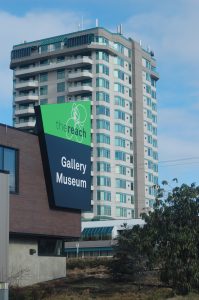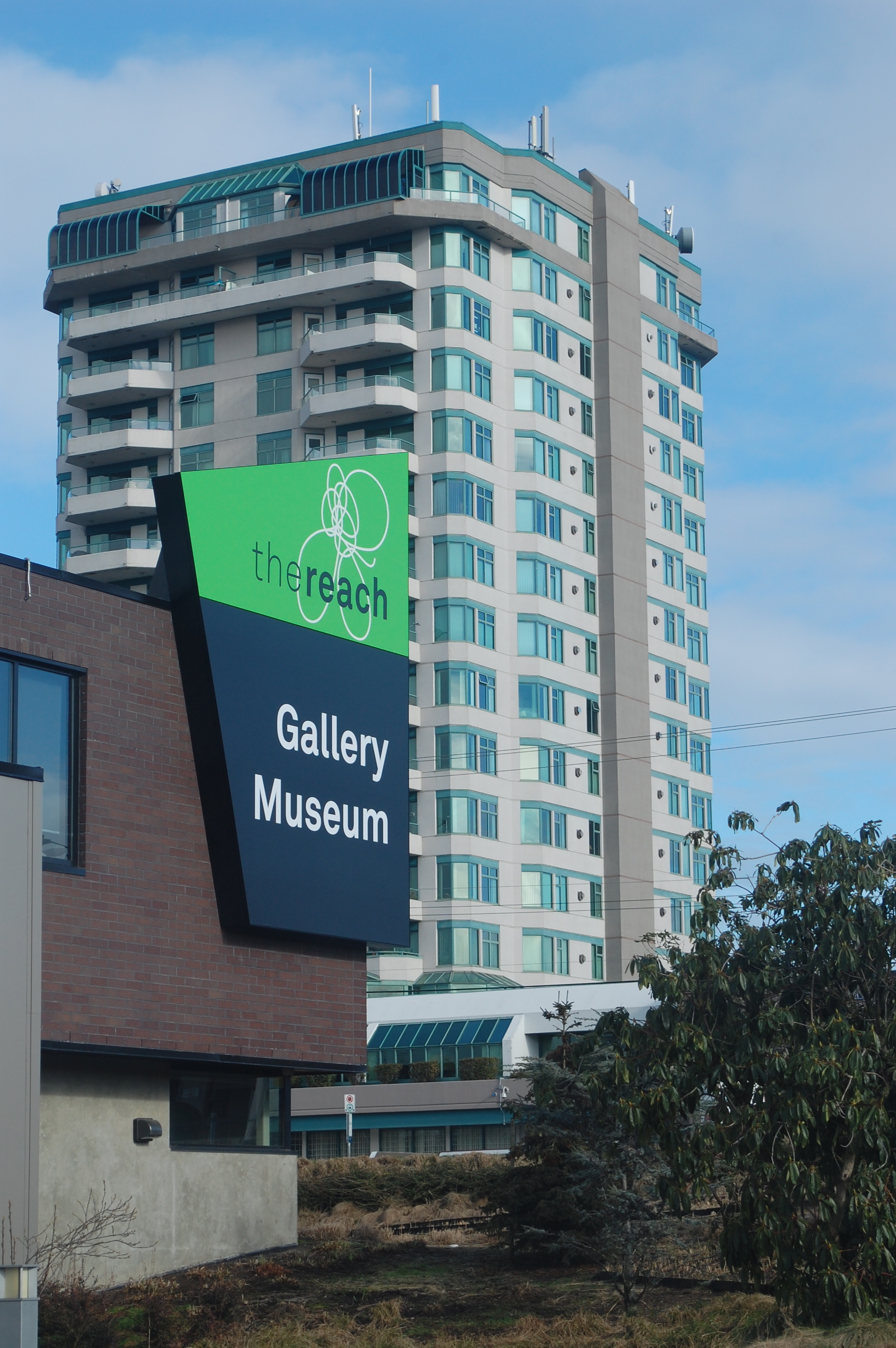Date Posted: May 30, 2011
Print Edition: May 27, 2011
Gallery-museum explores the many stories of our communities
By Paul Falardeau (The Cascade) – Email

The current exhibits at the Reach until the end of the month reflect its double mandate as both an art gallery and a museum. Furthermore, its excellence in these fields is outlined by its ability to trace the Fraser Valley’s history from the deep past to the vibrant present.
Starting with distant history, The Reach, with the help of the Stó:l? tribes, brings forth “Man Turned to Stone: T’xwelátse.” This four-foot high granite stone figure is expected to be over ten thousand years old. The Ts’elxweyeqw (Chilliwack) tribe tells the story of the Shaman T’xwelátse who is turned to stone by The Transformer because he refused to settle his dispute without fighting. From that time on, the man – in his stone form – was set as a constant reminder to his people (several of whom still bear his name) that all must work together for harmony; the man’s wife and descendents to this day care for the Stone T’xwelátse.
The exhibition displays T’xwelátse and his guardians, but also tells the story of his birth, his transformation and – 100 years ago – his tragic loss. As Europeans settled the Fraser Valley, T’xwelátse became separated from his descendents and eventually ended up in various curiosity shops and museums in the United States. After tireless efforts by the Stó:l? he has been returned and, until May 29, can be seen at The Reach. A one-of-a-kind opportunity, T’xwelátse offers historical, political, geographical, geological, and anthropological interests to scholars, while remaining a living being, a holy relic, a source inspiration, and a positive message to the first peoples of the Fraser valley.
Moving ahead in time, The Reach continues their “Our Communities, Our Stories” series with “Sikh Pioneers – 100 years of immigration, Integration and Identity.” With the centennial of the Gur Sikh Temple in mind, The Reach examines the trials and struggles – as well as the successes – of Sikh pioneers to the Fraser Valley. Archival photos, as well as period artifacts and other treasure awaits visitors and helps to explain the journey that so many Canadians underwent. The area of the Reach called “The Grotto” also features a special exhibit on the Sikh Gurus for anyone looking to brush up on the tenants of Sikhism.
Finally, and the most contemporary and artistically-leaning of the current displays is “Betty Goodwin Darkness and Memory.” From the collection of the Musee d’Art Contemporain de Montreal, Goodwin (Montreal 1923- 2008) was a constant presence on the Montreal art scene over five decades and made an undeniable impact on modern Canadian art.
Her work is represented by mixed prints, drawings, sculpting, and her monumental tarp pieces, showing off the depth of her talent and originality of her work. Throughout her work, Josee Belisle, Curator of the Permanent collection at MACM, notes that “Goodwin’s oeuvre developed in cycles of works, linked but distinct, that were executed either concurrently or in alteration but were always compelled by a singular and powerful thread: that of the traces and signs of the presence (or absence of the other and, by extension, the self). Betty Goodwin persistently re-examined the objects that shape our time and our passage through the uncertain territories of existence.”
The current exhibits will close on May 29, with a performance by Rapsure Rising and The Reach’s next exhibits will open to the public on June 16. Live at the Reach, with Art Napoleon, is on May 27, at 7 p.m.


